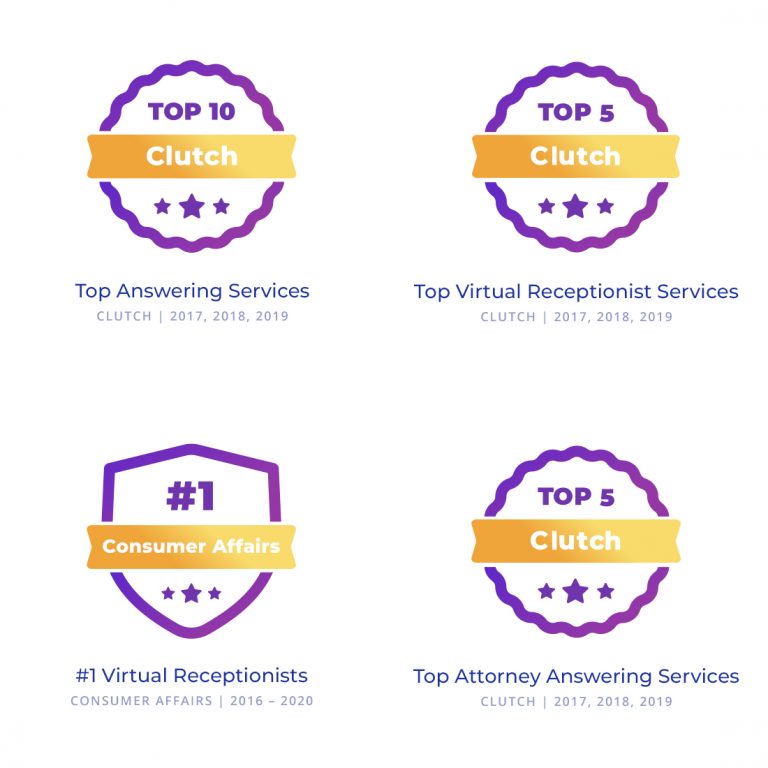Handling angry callers can be a challenging aspect of customer service and a source of phone anxiety, but knowing how to deal with angry callers can prevent damage to reputation and loss of profit. With the right strategies and mindset, you can navigate these situations effectively and turn them into opportunities for resolution and customer satisfaction.
This blog will explore expert tips for managing angry callers, including maintaining a calm demeanor, active listening, empathy, de-escalation techniques, effective communication, managing hold times, and taking ownership of the problem.
By implementing these practices, you can diffuse tension, build trust, and find mutually beneficial solutions for the customer and your business.
#1 Maintain a Calm & Professional Demeanor
When confronted with an unhappy customer, it is essential to remain composed and professional. Controlling your emotions and calmly responding can create a more positive atmosphere and prevent the situation from escalating further. Remember, your demeanor sets the tone for the conversation, and a calm approach can help the angry client feel heard and respected.
If you have the choice, it is better to have a conversation with an unhappy customer over the phone than email, so they can feel like you prioritized them and care.
#2 Active Listening & Acknowledgment
Angry customers want to express their frustrations; actively listening to them is crucial. Give them your full attention, avoid interrupting, and let them vent their concerns. Acknowledge their frustration and validate their feelings without becoming defensive. This approach demonstrates that you genuinely care about their issue and are committed to finding a resolution.
#3 Harnessing the Power of Empathy
Empathy plays a vital role in managing upset customers. Put yourself in their shoes and try to understand their perspective. Show empathy by understanding their frustration and assuring them you are there to help. Empathy helps build trust, defuses tension, and opens the door to effective problem-solving.
#4 De-escalation Techniques
De-escalation techniques are essential for diffusing tense situations. When call handling, remain calm, speak in a measured tone, and use reassuring and non-confrontational language. Repeat the caller’s concerns to show that you have understood their issue and are actively engaged in finding a solution. Offering alternative viewpoints, suggesting compromises, or presenting options can help redirect the conversation toward resolution. Be sure to check out our call handling workbook so you can start generating leads.
#5 The Role of Effective Communication
Effective communication is key to managing angry callers. Use clear and concise language, avoid technical jargon, and explain complex processes or policies in a simplified manner. Ensure that you are providing accurate information and clarify any potential misunderstandings. Active listening and summarizing the caller’s concerns can confirm that you are on the same page, fostering understanding and cooperation.
#6 Managing Hold Times and Callbacks
Extended hold times can further frustrate angry customers. Minimize hold times by having resources readily available and escalating urgent matters promptly. If a callback is necessary, clearly communicate the estimated timeframe and ensure you follow through on your commitment. Providing regular updates or offering alternatives during the wait can help alleviate frustration and demonstrate that their concerns are a priority.
#7 Taking Ownership and Communicating Next Steps
Taking ownership of the problem shows the caller that you are invested in resolving their issue. Assure them that you will investigate the matter thoroughly and communicate the steps you will take to find a solution. Be transparent about timelines and any limitations that may exist. Clear communication builds trust and reassures the caller that their concerns are being addressed.
#8 Remain Solution-Oriented
When faced with an angry caller, focus on finding a solution rather than dwelling on the problem. Collaborate with the caller to explore possible resolutions and offer options that address their concerns. Demonstrating your commitment to resolving the issue helps shift the conversation toward a positive outcome.
#9 Stay Empowered but Know When to Seek Assistance
While taking ownership of the problem is essential, recognize when a situation requires further assistance. If you cannot provide an immediate solution, involve a supervisor or someone with more authority who can help. Consult with colleagues or seek guidance from your team to ensure the best possible outcome for the caller.
#10 Maintain Professional Boundaries
While empathy is essential, it is equally important to maintain professional boundaries. Some callers may resort to offensive language or personal attacks. In such situations, staying composed is crucial, and not engaging in a confrontational manner is vital. Politely remind the caller that you are there to help them and redirect the conversation to resolve their concerns.
#11 Learn from Each Interaction
Treat each interaction with an angry caller as a learning opportunity. Reflect on the conversation afterward to identify areas for improvement. Assess your communication style, problem-solving approaches, and techniques for de-escalation. By continuously learning and growing from these experiences, you can refine your skills and effectively handle future interactions.
Mastering the Art of Handling Angry Callers With Abby Connect
Managing angry callers requires patience, empathy, effective communication, and problem-solving skills. You can confidently navigate these challenging situations by maintaining a calm and professional demeanor, actively listening, demonstrating empathy, utilizing de-escalation techniques, and communicating clearly. Additionally, managing hold times, taking ownership of the problem, and communicating the next steps effectively contribute to resolving the caller’s concerns and fostering customer satisfaction.
With Abby Connect’s small business answering service, you can replace negative interactions with positive experiences, enhance customer relationships and strengthen your brand’s reputation. With a human answering service, every interaction with an angry caller is an opportunity to showcase your commitment to exceptional customer service. Your dedicated virtual receptionist team is trained to remain solution-oriented, know when to seek assistance, maintain professional boundaries, and continuously learn from each interaction. Be well-equipped to transform angry callers into satisfied customers and leave a lasting positive impression on your business.

